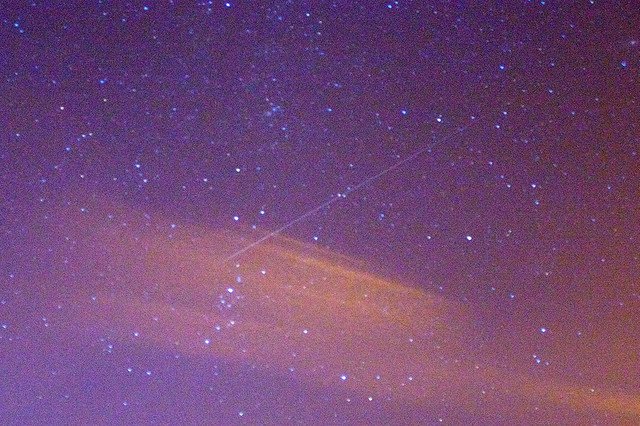
You can enjoy an online unique experience with Perseid meteor shower NASA web chat tonight!

This meteor shower peaks annualy on August 12 approximately and it brings forth about 60 meteors per hour ore more. An observer could spot up to 100 meteors per hour on the peak night when there is no moonlight. This year the Moon is full at that moment and makes shooting stars harder to see.[googlead tip=”lista_mica” aliniat=”stanga”]
“The Perseids are considered the best meteor shower of the year by many, but with the full moon washing out all but the brightest meteors, rates will probably only be 20-30 per hour at most — weather permitting. ” Says NASA.
This year the Perseid meteor shower will reach a peak for overnight (Friday, August 12 into the early morning Saturday, August 13) and the space agency is broadcasting a live web chat.
This wonderful sky show is more visible from the northern hemisphere because of the Perseids radiant which doesn’t go up above the horizon.
[googlead tip=”vertical_mic”]Perseid meteor shower NASA web chat tonight begins at 11 p.m. EDT ( 03:00 UTC GMT) and lasts until 5 a.m. EDT Saturday. Astronomer from the Marshall Space Flight Center Bill Cooke and his colleagues, Danielle Moser and Rhiannon Blaauw, will be online.
A light-activated camera at the NASA’s Marshall Space Flight Center in Huntsville, Alabama turn on each evening. On a dark background you can see at night stars or white points.
Hearing the sounds (whistles, blips, pings) of passing through meteors it is possible, even before the camera activates.
“The meteors themselves don’t make sounds, but they ionize the air around them as they burn up. These ionized air molecules reflect radio waves back to our antenna.” Says NASA.
[googlead tip=”vertical_mic”]On the Perseid meteor shower NASA web chat tonight you can ask question about Perseid and talk to the astronomers.
The Perseids is a prolific meteor shower associated with the comet Swift-Tuttle, they seem to radiate from constellation Perseus. The name derives from Perseides, sons of Perseus and Andromeda in Greek mythology.
While the Earth passes through the comet’s debris, pieces of ice and dust (over one thounsand years old) burn up in the Earth’s atmosphere.
Photo credit: fruitbit/flickr.com